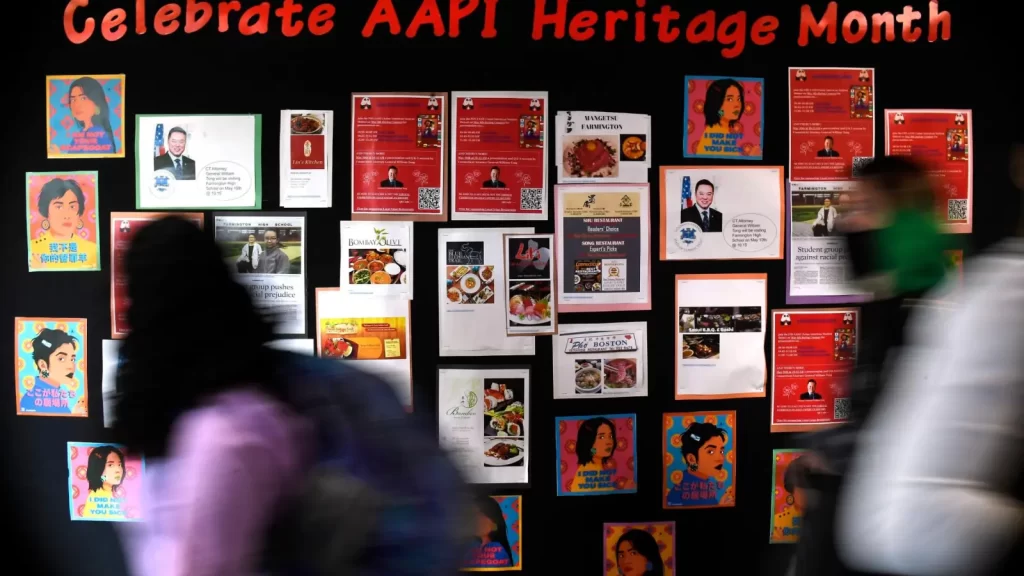Glitter, fame, and catchy music—it’s what we see in K-pop.
The vibrant performances, perfectly choreographed routines, and idols who seem to have it all create an alluring spectacle that captures millions of fans worldwide.
But behind the scenes, idols face grueling pressure, exploitation, and a toxic system that pushes young performers to their limits.
In recent conversations with Korean American students, I uncovered just how disturbing the reality of this billion-dollar industry is.
These students, who love the music yet are tuned into the cultural nuances, shared some truly eye-opening stories about what idols go through—struggles that run far deeper than what fans see on stage.
In this post, I want to pull back the curtain and shed light on the exploitation, abuse, and unrealistic pressures that shape the K-pop world, and why it’s so important to push for real change.
Exploitation of the Young and Talented
People often celebrate K-pop for its catchy tunes and dazzling performances.
However, the industry hides a darker reality.
The industry thrusts many young idols into a world where they face immense pressure to meet impossible standards.
The industry’s demands on these young talents are astronomical. It expects them to maintain a perfect image and deliver peak performance at all times. This distorts their initial dreams into a grueling experience of fame misuse.
The unending scrutiny and grueling pace of idol life weigh heavily on their mental health.
For many, what begins as a dream—standing on stage, adored by fans—gradually turns into a harsh reality they can’t escape.
The pressure to look flawless, to never slip up, and the constant worry about disappointing fans or management is a burden that can lead to serious, often heartbreaking, mental health struggles.
Moreover, this exploitation goes beyond just career demands—it impacts every aspect of their lives.
Pressure to Achieve Perfection: The Obsession with Appearance
One of the most disturbing aspects about the K-pop industry is how deeply it fixates on appearance. It’s not just about looking presentable; it’s about forcing young idols to chase a standard that feels almost inhuman.
A student recently shared a story about her friend, a young woman who once dreamed of becoming a K-pop idol. She was already slim, yet her supervisors constantly told her she wasn’t thin enough. Hearing this day after day wore her down, until she started to believe she wasn’t good enough just as she was. What was once her confidence turned into constant self-doubt and insecurity, making her question her own worth.
Producers took it a step further by enforcing extreme diets that were not only harmful but also dangerous. These diets, often consisting of minimal food intake, pushed idols to the brink of starvation. Some trainees are told to consume nothing but water for days or limit their meals to a single piece of fruit. These drastic measures are justified by the industry’s obsession with perfection.
Simply put, management prioritizes appearance over the physical and mental health of their idols.
The consequences are devastating. The industry’s fixation on a “perfect” image results in widespread eating disorders among idols, including anorexia and bulimia. Many idols experience extreme fatigue and fainting due to malnutrition and exhaustion from grueling training schedules. Yet, despite these health issues, the industry expects them to continue performing at their best.
The mental health toll is equally severe.
The relentless scrutiny and impossible standards that idols face every day can lead to serious mental health struggles—anxiety, depression, body dysmorphia. Many idols feel like they’re trapped, unable to speak out about their pain because they fear it might mean the end of their careers. In a world where image is everything, even hinting at personal battles is often seen as a flaw, a weakness. This only adds to the toxic environment they’re already trying to survive in.
Abuse of Power: Sexual Coercion and Exploitation
The K-pop industry has a darker side, marred by stories of sexual exploitation and abuse that reveal just how deeply power can be misused.
A few years ago, the Burning Sun scandal broke, sending shockwaves through the industry. It was more than just a headline scandal—it pulled back the veil on a world filled with abuse, drugs, and corruption, exposing the harsh reality many idols silently endure.

Figures implicated in the scandal weren’t just shadowy individuals but included well-known celebrities and even law enforcement officials. This mix of fame and authority created a protected environment where abuse could continue unchecked.
The true tragedy here is that idols who dare to speak out risk having their careers shattered, facing backlash and punishment for exposing what goes on behind the scenes. This silencing effect only fuels a cycle of abuse and fear, where victims are left with few options for justice or even relief.
Tragically, some idols have paid the ultimate price for this toxic environment. The heartbreaking deaths of Sulli and Goo Hara are stark reminders of the severe mental and emotional toll the industry can take.
Both women openly faced harassment, and their deaths underline the desperate need for change to protect these young performers.
The Burning Sun scandal and countless other instances of abuse highlight just how vulnerable idols truly are. It’s clear that real, comprehensive reform is needed. This isn’t about dealing with a few “bad actors” but about transforming an industry that, for too long, has profited from the silence and suffering of its stars.
Fan Culture: Dehumanizing Idols
Fan culture in K-pop often leads to the dehumanization of idols. For instance, fans can exert immense pressure on idols, seeing them not as individuals but as commodities. The devotion of fans can quickly turn toxic, as the line between admiration and control becomes blurred.
Take the story of Karina, an idol who faced backlash for entering a relationship with actor Lee Jae-Wook. Many fans saw her decision to pursue personal happiness as a betrayal. The public outrage forced Karina to apologize publicly and end her relationship—an emotionally devastating choice that no one should have demanded of her. Even after her apology, the damage was done. Online hate and harassment targeted Karina. Her situation highlights how people often view idols as products rather than individuals with their own lives and choices.

This dehumanizing perspective contributes to the immense pressure idols face. The industry expects them to meet not only their own expectations but also those of their fans, who often fail to recognize the personal lives and rights of these performers.
This intense dynamic speaks to a larger issue within the K-pop industry: the prioritization of fan satisfaction and profitability over the mental and emotional health of performers. For idols like Karina, the cost of fame is not just sleepless nights or demanding schedules; it’s the loss of personal freedom and self-expression.
Performance Pressures: Unrealistic Expectations
The pressure to deliver flawless performances is another significant issue in the K-pop industry. Furthermore, the industry expects many idols to perform perfectly at all times, even in the face of challenging conditions.
A notable example is Le Sserafim’s performance at Coachella, which was met with intense criticism and bullying.
Le Sserafim faced intense negative feedback despite the challenges of performing at a major international event like Coachella. Outdoor stages, long rehearsal hours, and pressure to stand out among global artists made the event demanding. Critics picked apart every detail, from minor vocal imperfections to small choreography mistakes. They ignored how physically and mentally exhausting performing in such high-stakes environments can be.
This kind of criticism reveals a bigger problem in K-pop culture, where fans often expect idols to deliver perfect performances every single time. The moment idols show even a hint of struggle or make a mistake, they’re met with intense judgment from fans and the media.
For Le Sserafim, this criticism quickly spiraled into online bullying. Social media was flooded with hateful comments, targeting not only their performance but even their personal qualities.

Many idols endure this silently, too afraid to open up, fearing it might hurt their careers or distance them from the fans they care so much about.
These impossible expectations only fuel the toxic environment that continues to exist in the industry, where the pressure to be “perfect” comes at the expense of their well-being.
Mental Health Toll: Tragic Consequences
The relentless pressure and constant scrutiny that K-pop idols face weigh heavily on their mental health. Behind every polished performance is a person who, like all of us, feels the exhaustion, the stress, and sometimes, the despair.
The industry’s breakneck pace and sky-high expectations often push idols toward serious struggles with anxiety, depression, and burnout—challenges they’re often left to face alone.
A 2022 report by Korea Joongang Daily discussed how idols like Dawon of WJSN have taken time off for mental health, highlighting a growing recognition of these issues.
In the report, it was noted that:
“This is not the first time K-pop idols have opened up about their mental health. After stars such as singer Kang Daniel halted his activities in 2019, confessing his panic disorder, and members Jeongyeon and Mina of girl group Twice took on-and-off breaks due to anxiety between 2019 and 2021, such mental disorders became more widely known to the public. In 2020, boy band DAY6 halted its activities as a whole group due to anxiety.”
This level of increased awareness is definitely a good thing, but there’s still a long road ahead. Idols like Dawon, Kang Daniel, and the members of TWICE have bravely spoken up about mental health and put their well-being first, but the industry needs to step up. Real support systems, such as accessible counseling, mental health days, and better work-life balance, shouldn’t be exceptions but rather the norm.
K-pop thrives on the hard work and passion of its idols, but that can’t come at the cost of their well-being. It’s time for the industry to recognize that mental health matters just as much as the performances on stage.
Advocating for Change: Prioritizing Human Rights
Addressing these issues requires a concerted effort to advocate for the basic rights and well-being of K-pop artists.
Agencies must prioritize the health and dignity of their idols over profit margins. This means implementing policies that protect their mental and physical health and ensuring that their rights are respected.
Fans also play a crucial role. By recognizing idols as individuals with personal lives and needs, fans can contribute to creating a more supportive environment.
This shift in perspective is essential for fostering a culture of respect and empathy within the K-pop community.
Creating a healthier K-pop industry begins with open dialogue and awareness. By addressing these issues head-on, we can work towards an environment where idols are valued for who they are, not just for their talent and appearance.
Envision a future where idols can pursue their dreams without fear of exploitation and abuse. A future where their well-being is prioritized and their voices are heard.
The Industry of K-Pop: Calling All Responsible Fans
The K-pop industry is a billion-dollar powerhouse, significantly contributing to South Korea’s economy. The “BTS effect” alone is estimated to bring in nearly $3.6 billion annually. This economic impact underscores the industry’s global influence.
- Korea Joongang Daily’s report provides further insights into the industry’s economic contributions and the challenges it faces.
- Martlenz’s article on K-pop’s economic influence explores the financial significance of K-pop and its global reach.
The K-pop industry must evolve into a beacon of inspiration and joy, both for its artists and its global audience. This evolution requires moving beyond the current practices and embracing ethical standards that respect and support the well-being of idols.
Fans hold tremendous power in shaping the industry. Every action—whether streaming a song, buying an album, or attending a concert—sends a message. Fans can use this influence to demand better treatment for idols.
- Educate Yourself: Learn about the industry’s dark side to understand the challenges idols face.
- Raise Awareness: Share what you know with other fans to build a collective voice for change.
- Support Ethical Labels: Back companies that prioritize the well-being of their artists.
- Advocate for Change: Use social media and other platforms to voice your concerns and push for improvements.
Taking a Stand: Celebrities Speaking Out
Even within the industry, there are voices advocating for change. Artists like Bobby of iKON and members of Twice and DAY6 have shared their struggles, providing valuable insights into the realities behind the glamour.

These testimonies are powerful. They highlight the need for systemic change and offer a glimpse into the personal experiences of idols. Supporting these voices helps humanize idols and foster a more compassionate fan culture.
Beyond the personal impact on individual idols, K-pop’s influence reaches far beyond the stage—it’s a global cultural and economic force. With its massive reach, any meaningful changes within the industry could set an example for the entertainment world everywhere, establishing better standards for how artists are treated worldwide.
Looking Ahead: A Brighter Future for K-pop
Change won’t come all at once, but it starts with raising awareness and standing up for better, more ethical practices. By supporting a safer, healthier industry, we can help shape a K-pop world that truly cares about its artists.
Imagine a future where idols can step onto the stage without fear, where their well-being is genuinely prioritized, and where they feel truly heard and respected.
As fans, we hold both the power and responsibility to drive these changes. Let’s work toward an industry that treats idols with the respect and dignity they deserve, valuing their happiness and health every bit as much as their talent.
- Respect and Dignity: Support an industry where idols are treated with respect and their health and happiness are valued.
- Collective Voice: Use your voice to push for meaningful change.
Join the conversation. Share this article. Educate others. Together, we can make a difference.








